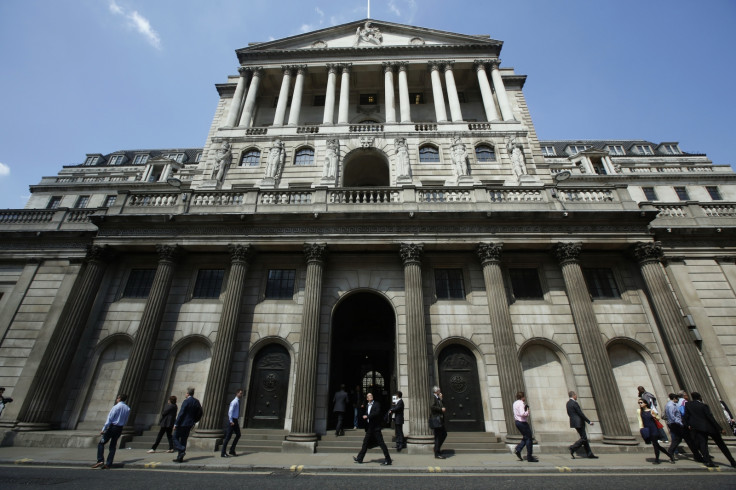BoE Minutes: Will Ian McCafferty and Martin Weale Continue Voting For a Hike?

Central bank policy review meetings, after a long period of unanimous decisions, suddenly start witnessing split vote decisions, and markets are bound to move on such surprises.
Two of the nine Monetary Policy Committee (MPC) members of the Bank of England voting in favour of a hike in the benchmark bank rate from its record low of 0.5% at the August meeting was an indication that the UK will start hiking rates sooner than the Fed.
That helped the pound fight the Scottish referendum-related negatives then weighing on the currency.
Ian McCafferty and Martin Weale have done the same at all the meetings since then, though the rest continued to vote successfully to keep the rates unchanged.
However, a change this month in favour of the majority's stance is not ruled out, thanks to lack of continued data support from the UK. Moreover, many economic signals have revealed downside risks to growth and inflation.
The big negative surprise in the September inflation data that was released after the 6 October policy decision is the main trigger to think that policymakers might find it more difficult to justify hiking rates in a hurry.
Headline inflation in the UK eased to 1.2% year-on-year in September from 1.5% in August, data on 14 October showed. The core measure dipped to 1.5% from 1.9% while analysts were expecting only a moderate drop to 1.8%. The BoE's target rate of inflation is 2%.
The BoE inflation report published on 12 November strengthened that view with the governor admitting downside risks to price pressures and the likelihood of him being forced to write a letter to the chancellor about the status of inflation targeting.
Now, most analysts say that the Fed is likely to do it first. The BoE minutes on Wednesday could provide some more cues with regard to that.
History of MPC Voting
Weale has voted for a hike as many as 10 times including the three decisions from August. McCafferty is relatively a new face in the BoE, having joined just two years ago. Weale had joined the MPC in 2010, second only to David Miles in seniority in the committee.
McCafferty has attended 23 meetings so far and voted thrice for a hike. Weale has taken part in 51 meetings and 20% of his sittings saw a call for a hike. This compares with Miles who always voted to maintain the rates at all the 65 meetings he attended.
The voting pattern history since 1997 shows that Mervyn King, the former BoE governor, was the one credited with the most number of meetings as well as hike voted. He attended 194 meetings and 30 times the vote was for hikes and 23 times for cuts.
Charles Bean attended more meetings after King, 166 times, and he voted for a hike only eight times. Paul Tucker and Kate Barker attended more than 100 meetings and they supported a hike only on a few occasions - 13 times and 11 times respectively.
The second rank in hike votes goes to Andrew Sentance, who favoured a hike 20 times of the 56 chances he got.
Two other reasonably good hawks were Willem Buiter and Andrew Large - Buiter wanted to hike 17 times when he voted 36 times and Large 12 times out of the 40 meetings he took part.
On the other side, Paul Fischer and Adam Posen were two central bankers who never supported a hike. Fischer got 65 opportunities when Posen got 56.
This analysis is done with random choice of names and the officials mentioned here for their specific bias could not be compared as they have served the central bank during different time periods.
It tells us only one thing - certain bankers are likely to stick to their stance for a significantly longer period and Weale and McCafferty could just be two among them. Or else, they may have read into the latest signals and decided differently this month.
© Copyright IBTimes 2025. All rights reserved.






















